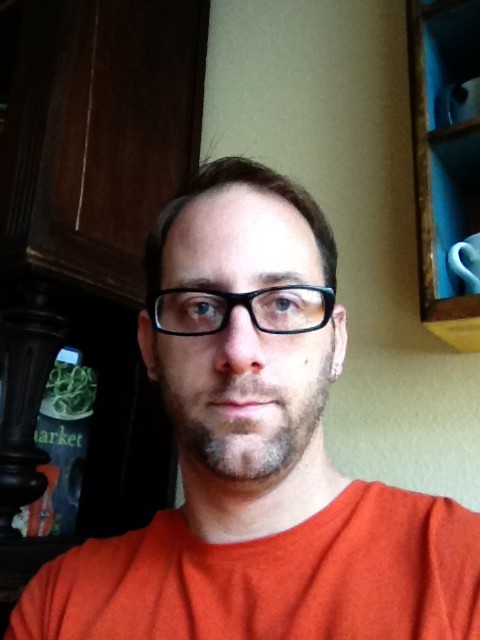Theology as Art – by Rocky Supinger
“We know what art is! It’s paintings of horses!”
Jack Donaghy
The assertion, “Theology is art” is as good a fault line as you’ll find dividing the splintered halves of what remains of Christendom. Recent events in my own denomination–the PC(USA)–are only the latest jolts issuing from the bad-tempered subterranean feuds over truth and authority that have caused all of western protestantism to walk lightly for the past three centuries.
On one side of that apparently widening divide are the Jack Donaghys of the fold. They, like the fictional NBC executive from the sitcom “30 Rock,” see “art” as self-centered, indulgent, and hopelessly subjective and are far more eager to be guided by reason and ratings in their deliberations.
Donaghy’s antagonists, TV writer Liz Lemmon and her cast of maladjusted writers and actors, is of course waving stupidly from the other side.
I’m a partisan in that dispute, and my first name ain’t Jack, Jack.
I am increasingly convinced that the Landon Whitsitts and the Mihee Kim-Korts of the church world are driving the caravan I want to join, even though there are other caravans to join, and even though these make better promises: of a re-polished establishment gauntlet; of relevance; of success. But as one who is continually being converted to a gospel that embraces doubters and exclaims “My Lord and my God!” at the spectacle of human weakness, I’m hopelessly attached to this rag-tag caravan of three-wheeled Schooners with their tattooed sails and artsy, bespectacled drivers.
Hence my affinity for the proposition about theology being art, even though (or perhaps because) I don’t consider myself an artist. I just really want an artful theology. That’s what I’m after, really: theology done artfully. I guess if “Theology is art” is an argument in the indicative, then I want to give the “Let’s do theology artfully” pep rally in the imperative. And that starts by dealing specifically and confidently with artists.
By “artists” I don’t simply mean those recognized as “artistic” for their superior technical skill or for their temperament or for their acute sensitivity. I do mean them, maybe even primarily them, but I also and completely mean everyone else. I mean each adherent of the Christian faith as a theologian and therefore an artist.
If anybody should indeed care about an art-theology, then they must be made to care about art-theologians. We need to more and more situate the believing subject squarely in the center of whatever theological discourse is emerging. Claiming theology as art in a meaningful way probably means celebrating individual theologians’ experiential, limited, contextual, grasp of theology’s object, God, and not perpetuating anymore the modern preference for objective, dispassionate, propositional, wrapped-in-printed-text, discourse as more theologically reliable.
Such an embrace of subjectivity as a reliable carrier of truth will alarm those for whom the rules and conventions of theology hold primacy of place. And with what I hope is seen as an artful posture, I want to embrace their alarm and allow it to set some of the terms of an artful theology.
Because “artful” also means attentive to rules. An artful theology must be a conventional theology, and there’s no more critical convention of theology than the insistence upon talking about God. Theology is God Talk. That’s it. The moment we start talking about something other than God, the God Christians see revealed in the person of Jesus of Nazareth, then we’re not doing theology any more.
Being versed in conventions needn’t mean cramming our heads with Barth and Augustine, though (it certainly could). Primarily, it means becoming thoroughly versed in the many and various best practices worked out over two millenia of Christian talk about God. For example: paradox. It’s a pretty reliable practice of Christian theology to make two apparently contradictory assertions at the same time:
Jesus is fully human.
Jesus is fully God.
That’s as conventional as Christian theology gets, and an artful theologian will not only be committed to the content of that convention but also to its carrier, to the form, the structure, of the paradox. And he will only depart from the tried-and-true best practices of theology when he has a really good reason to do so. He will, in the words of one Godly Play trainer, “Know the rules well enough to break them effectively.”
And, yes, please God may he break them. May he break them without telling us he’s breaking them. May he surprise us, scandalize us, delight us, all by spurning those dictates of God-talk that he learned in the academy, not because he’s intimidated by them but because he owns them and can restrain himself from mimicking them to please the ghosts of his systematics professors.
Improvise. That’s what I’m getting at. Artful theology is improvisational, which means that the artful theologian is one who is well aware that the discourse may get away from her. She knows that she’s not delivering a scripted monologue but participating in an unpredictable sketch about a milkman, a librarian, and a professional wrestler all on a boat together in the middle of an amusement park. Naked.
Here a caution is in order. Improvisational does not mean unprepared. The best improvisational actors are the most practiced ones. They are thoroughly prepared. Even though everything they do and say during a performance is spontaneous, it all issues from a rigorous routine of preparation that involves lots of repetition and doing things uniformly and predictably.
Finally, an artful theology will be a depressed theology, even a despairing one. The ear-severing Van Gogh will be more our model than the toothy-grinned Tony Robbins. Because art and theology both have to do with longing, and the artist or theologian who isn’t despairing probably isn’t longing. Exacting artists destroy more of their work than they display. This isn’t false humility or shrinking self-esteem, but captivity to unattainable standards of clarity, of depth, of rhythm of which we see only brief and fleeting glimpses. Which is maddening. And holy.
Rocky Supinger is the Associate Pastor at Claremont Presbyterian Church in Claremont, CA, and the incoming Moderator of the Presbytery of San Gabriel. He blogs at yorocko.com.



Pingback: Two amazing responses to Theology as Art | landon whitsitt (dot) com